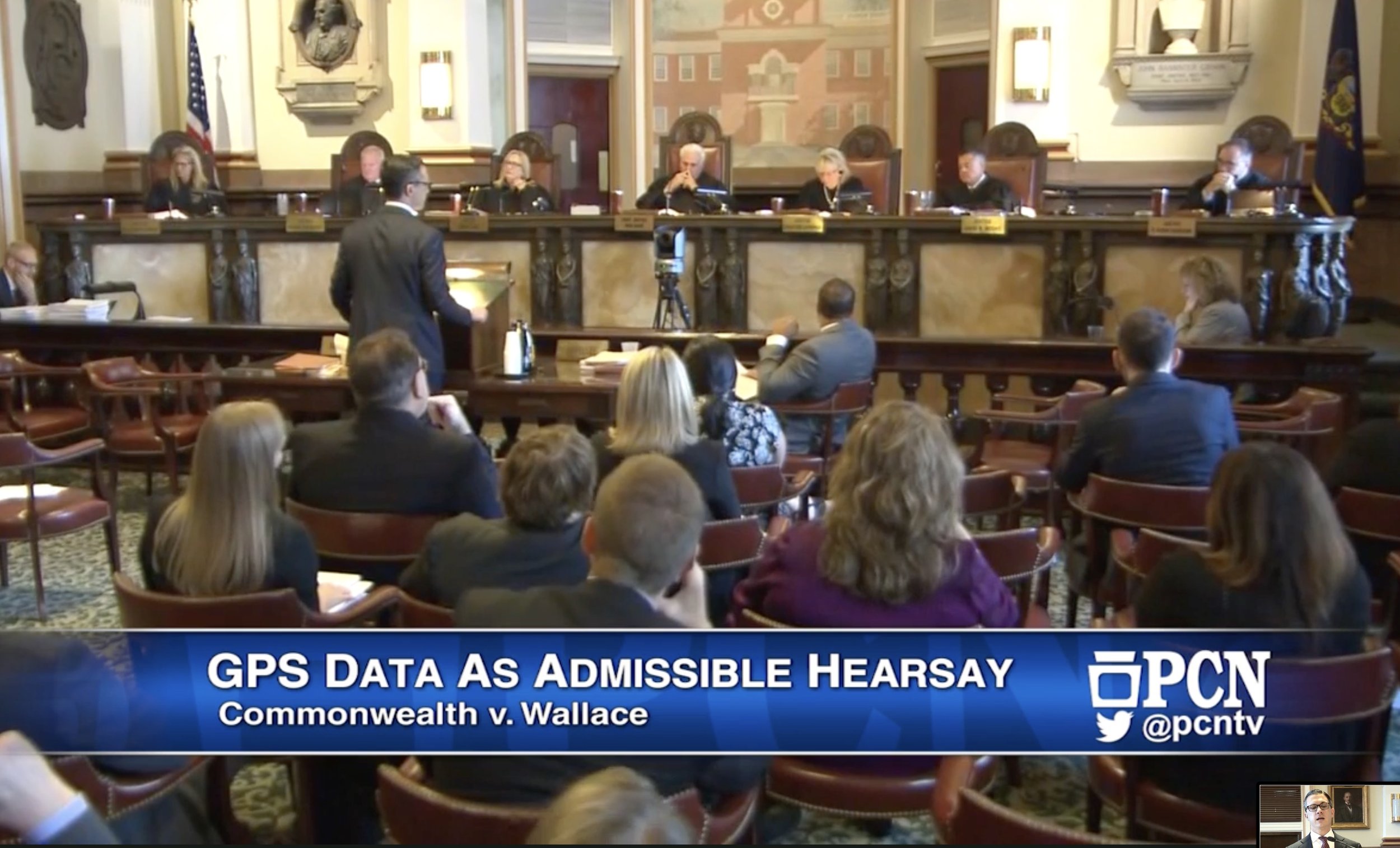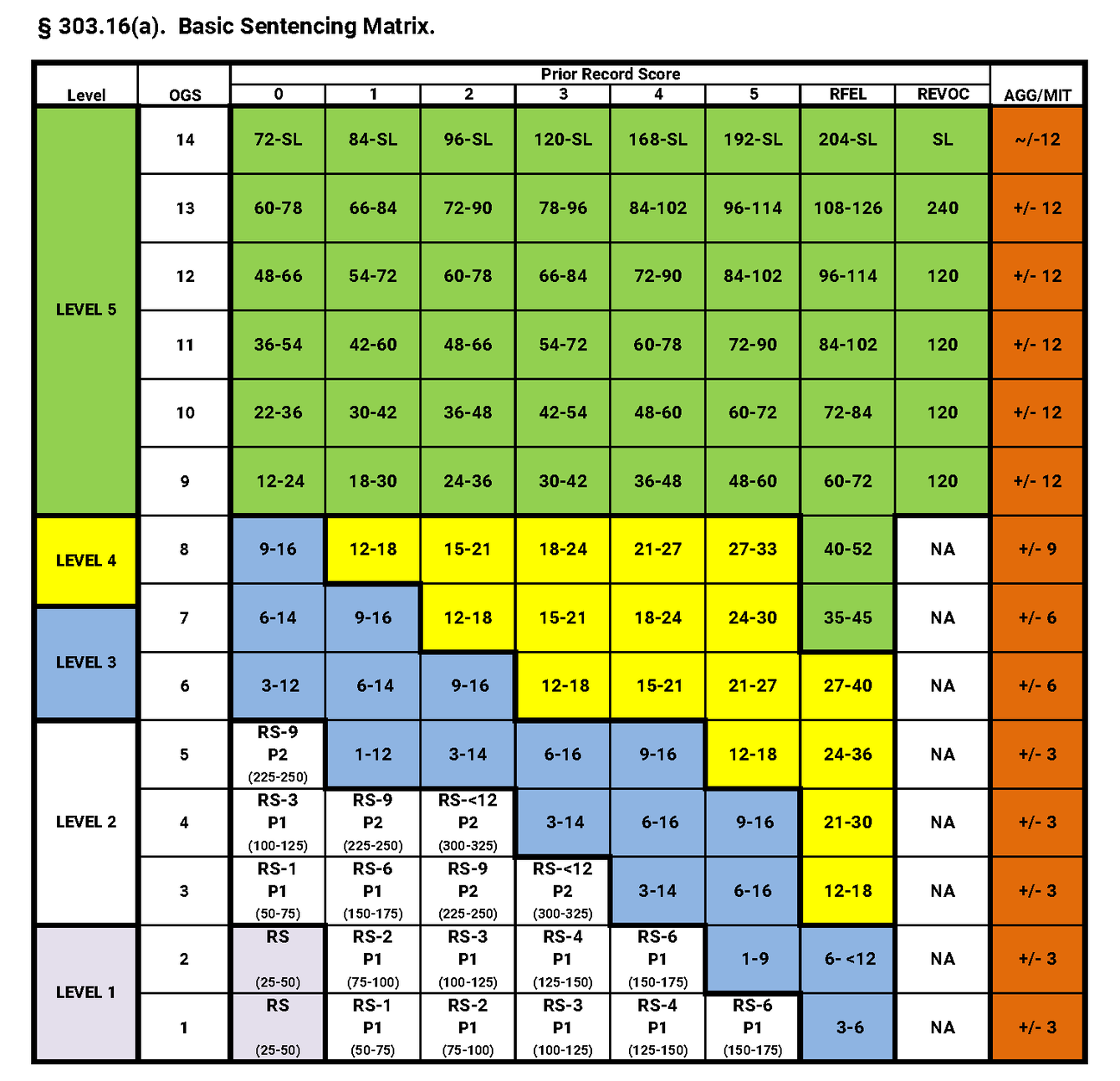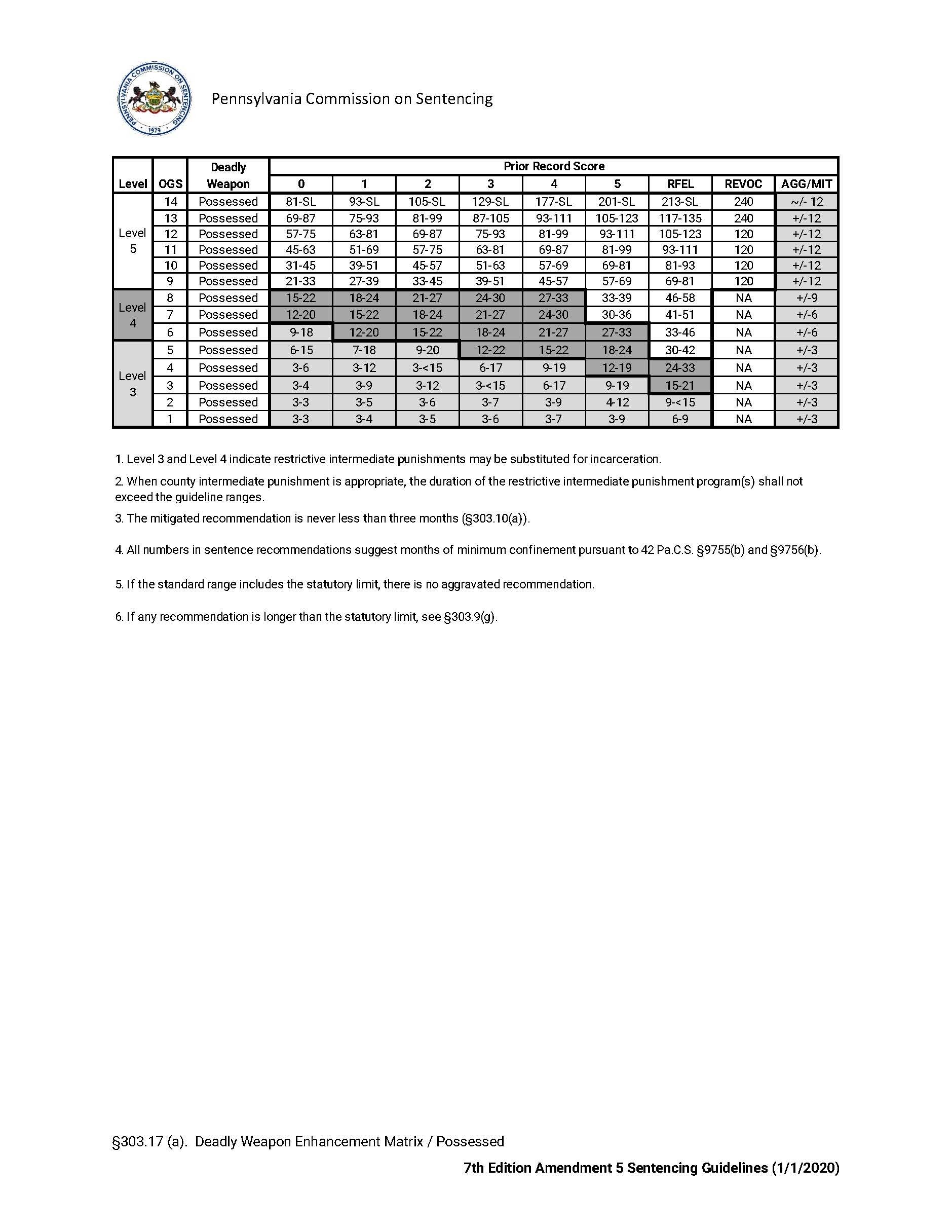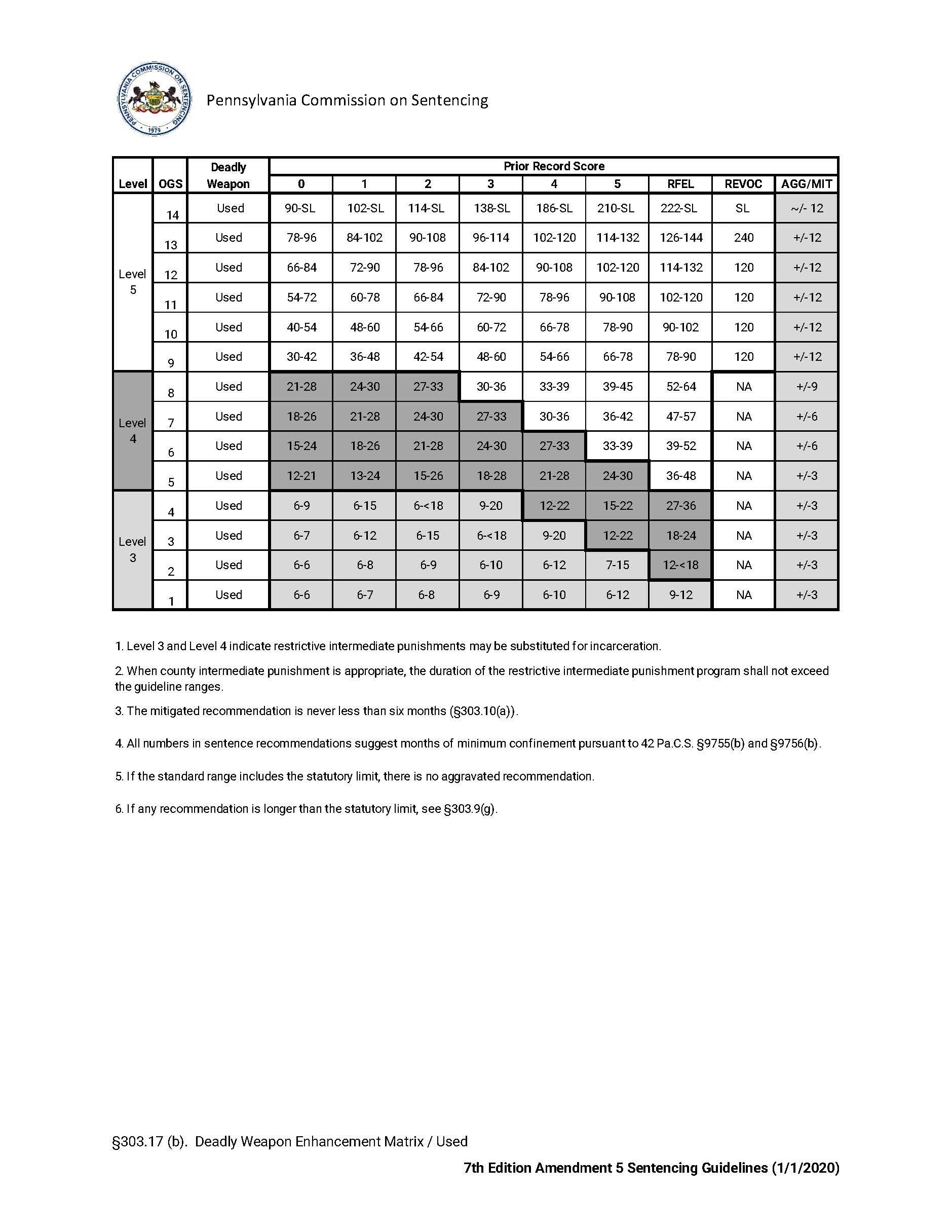
Philadelphia Criminal Defense Blog
PA Superior Court: COVID Speedy Trial Rule Suspensions Are Absolute Even if the Prosecutors Took Two Years Off
Criminal Defense Lawyer Zak T. Goldstein, Esquire
The Pennsylvania Superior Court has decided the case of Commonwealth v. Malone, holding that the COVID-related suspensions of Pennsylvania’s speedy trial rules are absolute no matter how little the Commonwealth did to try to move a case forward during the suspension.
In Malone, the Philadelphia Court of Common Pleas dismissed the defendant’s aggravated assault and possession with the intent to deliver case due to a violation of Rule 600. The court found that the Commonwealth failed to bring the defendant to trial for nearly two years and that the Commonwealth had failed to act with due diligence during that period. The Philadelphia courts suspended Rule 600 from March 2020 to October 1, 2021 due to COVID, but the trial court ruled that the Commonwealth would be entitled to the benefit of the suspension only if the Commonwealth had acted with due diligence during the relevant time periods. Because it had not, the time still counted, and the court dismissed the charges.
What is Rule 600?
Rule 600 is a state court speedy trial rule which requires the Commonwealth tho bring a defendant to trial within 365 days from the filing of the criminal complaint. Unfortunately, Rule 600 in general has a lot of exceptions. Time not attributable to the negligence of the prosecution generally often does not count. For example, continuance requests from the defense, the unavailability of a judge to hear the case, or even a police officer’s failure to appear for a good reason may result in the time between two court dates being excluded from the 365 day limit. In other words, time between hearings that is not really the prosecution’s fault does not count so long as the prosecution acted with reasonable due diligence in attempting to move the case forward to trial.
In March 2020, the Pennsylvania Supreme Court suspended Rule 600 as courts throughout the state shut down due to COVID. The Supreme Court lifted its suspension shortly thereafter, but it gave president judges for each county the authority to extend the suspension locally. Some counties, like York, began operating normally almost immediately. Others, like Philadelphia and Montgomery County, did not resume normal operations for nearly two years and are still struggling with COVID-related backlogs. Accordingly, Philadelphia’s president judge left the suspension in effect until October 1, 2021.
The Superior Court’s Ruling
The issue in this case, therefore, was whether the general rule that the Commonwealth must act with due diligence in order for the time between court dates to not count trumps the speedy trial rule suspension or whether the suspension of the rule was absolute. In this case, the Superior Court ruled that the suspension was absolute and the Commonwealth had absolutely no obligation to do any work on its cases during the nearly two year period that Philadelphia suspended the operation of Rule 600. Therefore, the Superior Court reversed the decision of the trial judge and reinstated the charges. It seems reasonable to expect the prosecution to have monitored its cases and worked to get them ready during the shut downs, but the Superior Court has ruled that they had no obligation to do so.
The defendant will now again face trial in the Court of Common Pleas. Given that the case is now more than three years old, the Commonwealth will likely struggle to prosecute the defendant, but further litigation will follow.
Facing criminal charges? We can help.
Criminal defense attorney Zak T. Goldstein, Esquire arguing before the PA Supreme Court
If you are facing criminal charges or under investigation by the police, we can help. We have successfully defended thousands of clients against criminal charges in courts throughout Pennsylvania and New Jersey. We have successfully obtained full acquittals in cases involving charges such as Conspiracy, Aggravated Assault, Rape, and Murder. We have also won criminal appeals and PCRAs in state and federal court. Our award-winning Philadelphia criminal defense lawyers offer a free criminal defense strategy session to any potential client. Call 267-225-2545 to speak with an experienced and understanding defense attorney today.
Not Guilty: Jury Acquits Attorney Goldstein’s Client of Indecent Assault
Philadelphia Criminal Defense Lawyer Zak T. Goldstein, Esquire
Philadelphia criminal defense attorney Zak T. Goldstein, Esquire, recently obtained a full acquittal for a client charged with multiple counts of indecent assault. In Commonwealth v. L.B., police arrested and charged L.B. with indecent assault as a felony of the third degree and indecent exposure for one complainant as well as indecent assault as a misdemeanor of the second degree for a second complainant. L.B. worked as a massage therapist, and two women accused him of touching them inappropriately during massages.
The first complainant was a regular patient of the client’s. She claimed that L.B. sexually assaulted her during one of the massages by touching her inappropriately and masturbating in front of her. L.B. denied the accusation to the police, and the police initially declined to file charges.
That decision changed, however, when a second complainant made similar allegations against L.B. She claimed that she also went to see him for a massage. During the massage, he began to touch her inappropriately. Specifically, she alleged that he touched too far up her legs and eventually touched the outside of her vagina. She then left, and later that night, she sent L.B. a text message accusing him of assaulting her.
Once the second complainant made her allegations, the police arrested L.B. Prosecutors charged him with indecent assault as a felony of the third degree for allegedly putting his fingers in the first complainant’s vagina and indecent assault as a misdemeanor for touching the outside of the second complainant’s vagina.
Sexual assault cases involving more than one complainant are extremely difficult to defend. Although the jury should consider each allegation separately, it becomes very difficult for jurors to properly evaluate the evidence when more than one person makes an allegation. Judges routinely permit the Commonwealth to try these cases together even though it makes it very difficult to receive a fair trial, and in this case, the defense’s motion to sever the cases was denied.
Fortunately, L.B. retained Attorney Goldstein for trial. L.B. proceeded by way of jury trial, and Attorney Goldstein successfully argued to the jury that the complainants had fabricated the assaults. Attorney Goldstein’s cross-examination established that the first complainant had continued trying to make appointments for massages at the same spa after the alleged assault, failed to tell anyone for about a month, failed to warn other people she knew went there for massages that they should not go there anymore, and that she had hired a lawyer and sued the spa before she even went to the police.
Similarly, cross-examination revealed that the second complainant had also hired the same lawyer and sued the spa, failed to tell the police for a few weeks, and made allegations that were not even necessarily an indecent assault. Additionally, she had given L.B. a large tip for the massage.
Given the financial motive, inconsistencies, and strange behavior, the complainants’ stories were difficult to believe. There was also no other evidence, but sexual assault cases can be very difficult to defend. There is usually no other evidence that something happened other than the complainant’s testimony. Therefore, Pennsylvania law allows the prosecution to bring charges and for a jury to convict without any other evidence if the jury believes the testimony beyond a reasonable doubt. Further, prosecutors and judges will repeatedly instruct the jury throughout the trial that they do not have to have any other evidence other than oral testimony in order to convict. Many jurors also have trouble believing that someone could lie about something so serious.
In this case, however, Attorney Goldstein’s cross-examination revealed that the stories just were not credible. The jury deliberated for a few hours and then acquitted L.B. of all charges. Had he been convicted, he would have been facing a state prison sentence and Megan’s Law registration. Now, he has the right to have all of the charges expunged.
If you are facing allegations of sexual misconduct or sexual assault, it is extremely important that you retain counsel with experience defending against these types of allegations. There are often critical motions which need to be filed and important investigations that need to be conducted in order to obtain exculpatory evidence. Most importantly, successful cross-examination of the witnesses in these cases requires a great deal of experience, sensitivity, and skill. Fortunately, L.B. retained Attorney Goldstein, and Attorney Goldstein was able to obtain a full acquittal.
Facing criminal charges? We can help.
Goldstein Mehta LLC Criminal Defense Lawyers
If you are facing criminal charges or under investigation by the police, we can help. We have successfully defended thousands of clients against criminal charges in courts throughout Pennsylvania and New Jersey. We have successfully obtained full acquittals in cases involving charges such as Conspiracy, Aggravated Assault, Rape, and Murder. We have also won criminal appeals and PCRAs in state and federal court. Our award-winning Philadelphia criminal defense lawyers offer a free criminal defense strategy session to any potential client. Call 267-225-2545 to speak with an experienced and understanding defense attorney today.
PA Sentencing Guidelines | I got arrested. Am I going to jail?
The PA Sentencing Guidelines provide the sentencing judge with a range of minimum sentences to consider imposing following a conviction.
The Pennsylvania Sentencing Guidelines
Note: This article is based on the pre-January 1, 2024 guidelines. Any offense committed prior to January 1, 2024 will involve the guidelines discussed in this article. For a discussion of the new guidelines, please see this article.
One of the most common questions we get when meeting with a new client is, “What am I looking at if we lose? Am I going to go to jail?” The answer is almost always, “it depends.”
First, if the client has made the smart decision and hired one of our PA criminal defense attorneys, the client could very well be looking at winning the case or negotiating entry into a pre-trial diversionary program that will not result in a conviction or incarceration. The above question assumes that the client is going to lose and be convicted of the most serious charge, which is often not the case. There are many cases that can be won at preliminary hearing, through pre-trial motions, or at trial. Each case is different, but we regularly try and win cases. Even those cases that cannot be won can often be negotiated down to lesser charges, so even when the prosecution's evidence is strong, there is always the possibility of working out a good deal for the defendant. Therefore, there are lots of cases in which the client will ultimately not end up serving any kind of sentence or will eventually face a sentence on a less serious charge.
Second, although there are never any guarantees, it is usually possible to predict the best and worst case scenario by considering any applicable mandatory minimums, sentencing guidelines, and the sentencing practices of the judge. Even though it is never possible to predict an outcome or whether a defendant could go to jail with complete certainty, it is generally possible to have an idea of what the possible and most likely outcomes are for different types of charges.
Pennsylvania Mandatory Minimum Sentencing Laws
When considering what sentence you could get, the first place to start is to find out whether there are any mandatory minimums. Most Pennsylvania mandatory minimum sentences were eliminated by decisions of the United States and Pennsylvania Supreme Courts. However, a handful of mandatory minimums remain.
For example, there are still mandatory minimums for repeat offenders who are convicted of certain crimes of violence such as F1 Robbery, Aggravated Assault, Homicide, certain types of Burglary and Sex Crimes, and other serious “strike” crimes. There are also significant mandatory minimum sentences for DUI/DWI. Other mandatory minimums which apply to the sexual abuse or physical assault of children have also been reinstated and may call for significant periods of incarceration.
The Pennsylvania state legislature has considered reinstating the other mandatory minimums which were struck down by the courts such as those based on drug weights and gun possession while committing a crime of violence, but it has not yet done so. You can learn more about mandatory sentences here. There are also still a number of significant mandatory minimums for many federal charges. Therefore, the first step is to figure out if there are any mandatory minimums. If there is one, then the strategy will likely become avoiding a conviction for the charge or fact that would trigger the mandatory minimum. Any mandatory minimum will trump the sentencing guidelines, meaning that if the mandatory minimum is higher than the guideline range, the court must still sentence to the longer sentence called for by the mandatory minimum.
Calculating the Sentencing Guidelines in Pennsylvania
Second, once you and your defense attorney have determined whether there are any mandatory minimums which could apply to the offense, it is critical to calculate the Pennsylvania sentencing guidelines. The guidelines provide a good estimate of what type of sentence the defendant could receive if convicted. In both Pennsylvania and the federal system, the sentencing guidelines are not mandatory, meaning a judge can depart upward or downward from the guidelines if there is a good reason to do so. However, judges in both systems are required to correctly calculate the guidelines, strongly consider them, and provide sufficient reasons on the record for departing from them if they choose to do so. Departures from the guidelines are generally more common in state court than they are in federal court, but even in state court, the judges typically sentence based on the guidelines. In recent years, the guidelines have become less important in Philadelphia, but the judges must still calculate them accurately and consider them.
Under the Pennsylvania system, every sentence (except for extremely short sentences of a month or two) must have a minimum and a maximum. The maximum must always be at least double the minimum. If the maximum is two years or more, then the defendant will typically serve the sentence in a state prison. If the maximum is less than two years, then the defendant will serve the sentence in the county prison. There are some exceptions to this general rule for sentences under five years, particularly in cases involving Driving under the Influence. In those cases, the Commonwealth may agree to allow a defendant to serve even a two-year sentence in the county jail so long as the maximum is no greater than five years.
The Pennsylvania sentencing guidelines provide a recommended range for the minimum sentence. Once the judge picks a minimum, the judge is free to pick whatever maximum the judge feels is appropriate up to the statutory maximum for the offense. The recommended minimum range is calculated by determining the defendant’s Prior Record Score and the Offense Gravity Score of the charge. The Prior Record Score and Offense Gravity Score are then entered into a sentencing matrix, and the matrix provides a recommended minimum sentence. In many cases, the standard sentencing matrix will apply. However, if the prosecution can prove that the defendant possessed or used a deadly weapon during the commission of the crime, then an alternative matrix could apply which will recommend a more severe sentence.
The Offense Gravity Score
Each offense has an assigned numeric Offense Gravity Score. When the judge or pre-sentence investigator calculates the guidelines after a conviction or plea,they will do it for each offense. The judge will typically sentence based on the most serious charge, but a judge can always run sentences consecutively if the judge so chooses. It is often common to attach probation sentences to some of the less serious charges. For purposes of providing an example, possessing a concealed, loaded firearm without a license (which violates VUFA § 6106) carries an Offense Gravity Score of 9. The Offense Gravity Score for each offense can be found at http://www.pacode.com/secure/data/204/chapter303/s303.15.html.
Calculating the Prior Record Score
Once the Offense Gravity Score has been calculated, the next step is to determine the defendant’s Prior Record Score. Just as each charge has a corresponding Offense Gravity Score, each conviction also has a corresponding Prior Record Score. For example, Possession with the Intent to Deliver adds two points towards a defendant’s Prior Record Score. The Prior Record Score is calculated by adding up the points that correspond with each of the defendant’s prior convictions. The maximum Prior Record Score is 5, but there are two special categories for defendants with certain felony convictions. Defendants with prior convictions for F1 or F2 felonies which total more than 5 points have a prior record score of REFEL, and defendants with prior violent convictions for certain F1 felonies who are charged with additional violent offenses could have a prior record score of REVOC. It is also important to note that many adjudications of delinquency for juvenile offenders will count towards the Prior Record Score, but some will not. Many people mistakenly believe that juvenile records do not count in adult court, but depending on the offense and the defendant’s age at the time of the offense, the juvenile record may count towards the Prior Record Score. Even if it does not formally count, a judge will often be made aware of the conviction and will be free to consider it in deciding on as sentence. The Prior Record Score points for each offense are listed at http://www.pacode.com/secure/data/204/chapter303/s303.15.html.
The PA Sentencing Guidelines Matrix (Basic)
The Pennsylvania Sentencing Guidelines Matrix (Standard Range)
Sentencing Guidelines for Possessing a Concealed Firearm Without a License to Carry
Once the Offense Gravity Score and Prior Record Score have been calculated, the above sentencing matrix or chart can be used to determine the recommended minimum sentencing range. There are different matrices for crimes committed while in possession of a deadly weapon or where a deadly weapon was used, and there are also certain sentencing enhancements for certain offenses like possession of child pornography. However, the basic sentencing matrix above applies to most cases. As you can see, in the example above in which a defendant has a Prior Record Score of 2 for a PWID conviction and an Offense Gravity Score of 9 for a VUFA § 6106 charge, the recommended minimum sentence is 24 – 36 months plus or minus 12 months. This means a standard guideline sentence would have a minimum of somewhere between two and three years, but the judge can subtract 12 months if there is strong mitigation evidence or add 12 months if there are significant aggravating factors. The judge would then have to pick a maximum sentence which is at least double the minimum, so if the judge were to sentence the defendant to a minimum of 18 months of incarceration, the judge would have to make the sentence at least 18-36 months.
This leads to the last and possibly most important part of predicting what the defendant is looking at. As the example above illustrates, the judge has a tremendous amount of discretion in determining the sentence. For a VUFA 6106 conviction for a defendant with no record, which is an extremely common situation, the judge could sentence anywhere from probation to 3-6 years in state prison and still have imposed a guideline sentence.
It is very difficult to challenge a guideline sentence on appeal. The Superior Court is often reluctant to even review an above-guideline sentence. For this reason, it is extremely important to have a lawyer who understands not only the mandatory minimums and the applicable sentencing guidelines, but also the sentencing practices of the judge. If the lawyer knows from experience that the judge is likely to impose a mitigated sentence for an open (meaning non-negotiated) guilty plea, then the lawyer can advise a client to reject an offer from the Commonwealth which is not fully mitigated. Likewise, if the lawyer knows that the judge is likely to impose a low guideline sentence even after conviction at a bench trial, the lawyer may be able to provide advice that it is better to have a judge trial than a jury trial. Obviously, it is critically important that you hire a lawyer who knows the system, knows the law around sentencing, and has experience practicing before the judges who would ultimately impose sentence. It is even more important that you have a lawyer who understands the importance of sentencing and how to craft a persuasive mitigation argument for the judge in order to get the judge to impose a mitigated or below guideline sentence.
What factors does a judge consider at sentencing?
There are a number of different factors that a judge could consider at sentencing. For example, the judge will typically look at some of the following factors:
the seriousness of the offense,
whether the defendant has a prior criminal record,
whether the defendant has complied with the conditions of pre-trial release or participated in programs while in custody awaiting sentencing,
whether the defendant has a job,
and whether the defendant has community support and people who are willing to speak on his or her behalf.
A judge would also be required to consider any potential mandatory minimum sentence that could apply.
In order to obtain the best possible sentence for our clients, we often focus on obtaining proof of employment, character letters from friends, family, and community members, and proof of drug or alcohol treatment or other counseling as necessary. In some cases, it can be helpful to obtain an evaluation from a medical profession in order to prepare an expert report as to whether a defendant is likely to respond well to treatment.
Our Philadelphia Criminal Lawyers Can Help
Philadelphia Criminal Defense Attorneys
The Philadelphia Criminal Defense Lawyers of Goldstein Mehta LLC have the legal expertise and practical experience necessarily to properly advise and defend anyone facing criminal charges in Philadelphia and the surrounding counties. We know the law, we know the defenses, and we have experience practicing before the judges. We can evaluate your case and potential defenses and come up with a plan to minimize the consequences of an arrest – whether that means negotiating a better sentence or taking the case to trial for an acquittal. If you or a loved one are facing criminal charges, call 267-225-2545 today for a free, confidential consultation.
PA Sentencing Matrix (Deadly Weapon Possessed)
The Pennsylvania Deadly Weapon Possessed Guideline Matrix
PA Sentencing Matrix (Deadly Weapon Used)
The Pennsylvania Deadly Weapon Used Guideline Matrix
Attorney Clemens’s Client Acquitted of VUFA (Gun) Charges
Defense Attorney Thomas C. Clemens
Philadelphia criminal defense attorney recently won a full acquittal for his client in a case involving firearms charges. In Commonwealth v. A. C.-O., prosecutors charged the client with various offenses under the uniform firearms act (VUFA offenses) for allegedly possessing a firearm in a vehicle without a license to carry. Fortunately, A.C.-O. retained Attorney Clemens, and Attorney Clemens took the case to trial.
In the case, police claimed that the client and multiple other men were in a car in the Frankford section of Philadelphia when the police stopped the car on suspicion of a traffic violation. The client was in the backseat of the car along with three other men, and the officers testified that they saw a gun underneath one of the other occupant’s feet. The police instructed everyone to get out of the car, and as the client was getting out, he took his backpack off and placed it on the floor of the car. The police immediately grabbed the backpack, searched it, and found a gun inside it. Unsurprisingly, they arrested the client and charged him with VUFA offenses for illegal possession of the gun in the backpack.
A.C.-O. retained Attorney Clemens, and Attorney Clemens took the case to trial. During trial, Attorney Clemens cross-examined the police officers on numerous inconsistencies in the various police reports regarding the locations of the various males in the car, as well as the chaotic scene at the time of the arrest. Despite the police officers’ unwavering testimony that A. C.-O. was the individual with the gun in his backpack, Attorney Clemens raised reasonable doubt as to whether A.C.-O. had ever even touched the backpack, and A. C.-O. was eventually acquitted of all charges. Given the full acquittal, A.C.-O. has the right to an expungement of the arrest record, and he will not have to serve any time in prison as a result of the arrest.
Facing criminal charges? We can help.
Criminal Justice Center in Philadelphia
If you are facing criminal charges or under investigation by the police, we can help. We have successfully defended thousands of clients against criminal charges in courts throughout Pennsylvania and New Jersey. We have successfully obtained full acquittals in cases involving charges such as Conspiracy, Aggravated Assault, Rape, and Murder. We have also won criminal appeals and PCRAs in state and federal court. Our award-winning Philadelphia criminal defense lawyers offer a free criminal defense strategy session to any potential client. Call 267-225-2545 to speak with an experienced and understanding defense attorney today.
















